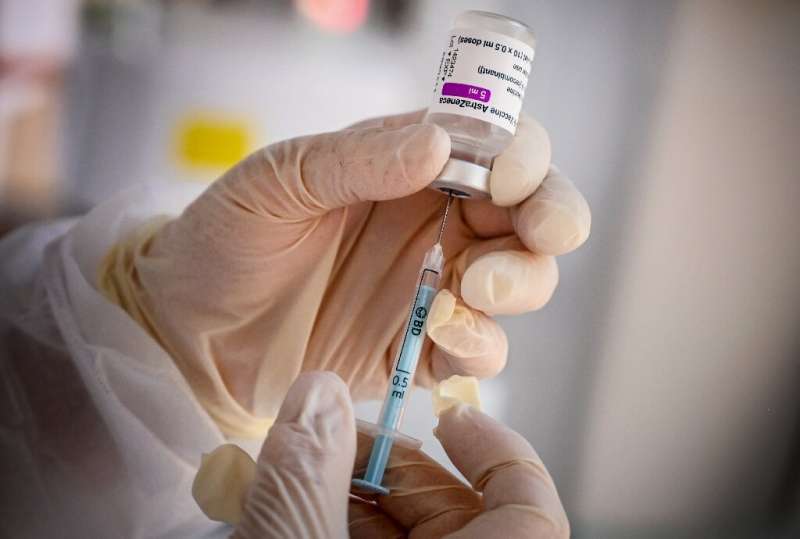
The EU’s medicines watchdog said on Wednesday two jabs by approved vaccine makers were “vital” to provide maximum protection against the highly infectious coronavirus Delta variant, urging countries to speed up their inoculation drives.
“Preliminary evidence suggests that both doses of a two-dose COVID-19 vaccine… are needed to provide adequate protection against the Delta variant,” the European Medicines Agency said.
“Adherence to the recommended vaccination course is vital to benefit from the highest level of protection.”
Calling it a “variant of concern”, the EMA said the Delta strain, first detected in India, was “spreading fast in Europe and may seriously hamper efforts to control the pandemic”.
By the end of August, this variant would represent 90 percent of all coronavirus cases, the European Centre for Disease Prevention and Control said in the same statement.
“This makes it essential for countries to speed up vaccination programmes, including delivery of second doses where recommended and to close the gaps and opportunities for further emergence of variants as soon as possible,” the EMA said.
There were good scientific grounds that mixing different makes of jabs between a first and second inoculation was safe and effective against COVID, the EMA said.
The use of such a vaccination strategy “may allow populations to be protected more quickly and make better use of available vaccine supplies”.

Currently the EMA has approved three two-dose vaccines for use in Europe: Pfizer/BionTech’s Comirnaty, Spikevax by Moderna and Vaxzevria made by AstraZeneca.
A fourth vaccine by Johnson & Johnson required only a single shot.
Booster shot?
The EMA however said it was too early to confirm whether a booster would be needed because there was not yet enough data from vaccination campaigns and ongoing studies.
France and Greece on Monday joined countries that are reimposing tighter COVID-19 restrictions to stem the surge of Delta variant infections.
This included the Netherlands which announced a U-turn last Friday on a raft of measures which were eased last month, only to see new infections skyrocket in just over three weeks particularly among unvaccinated young people aged 18-25.
The virus has killed more than four million people since first emerging in China in late 2019, and attempts to halt its spread are being hampered by mutations creating highly contagious variants such as Delta, first seen in India.
Source: Read Full Article






